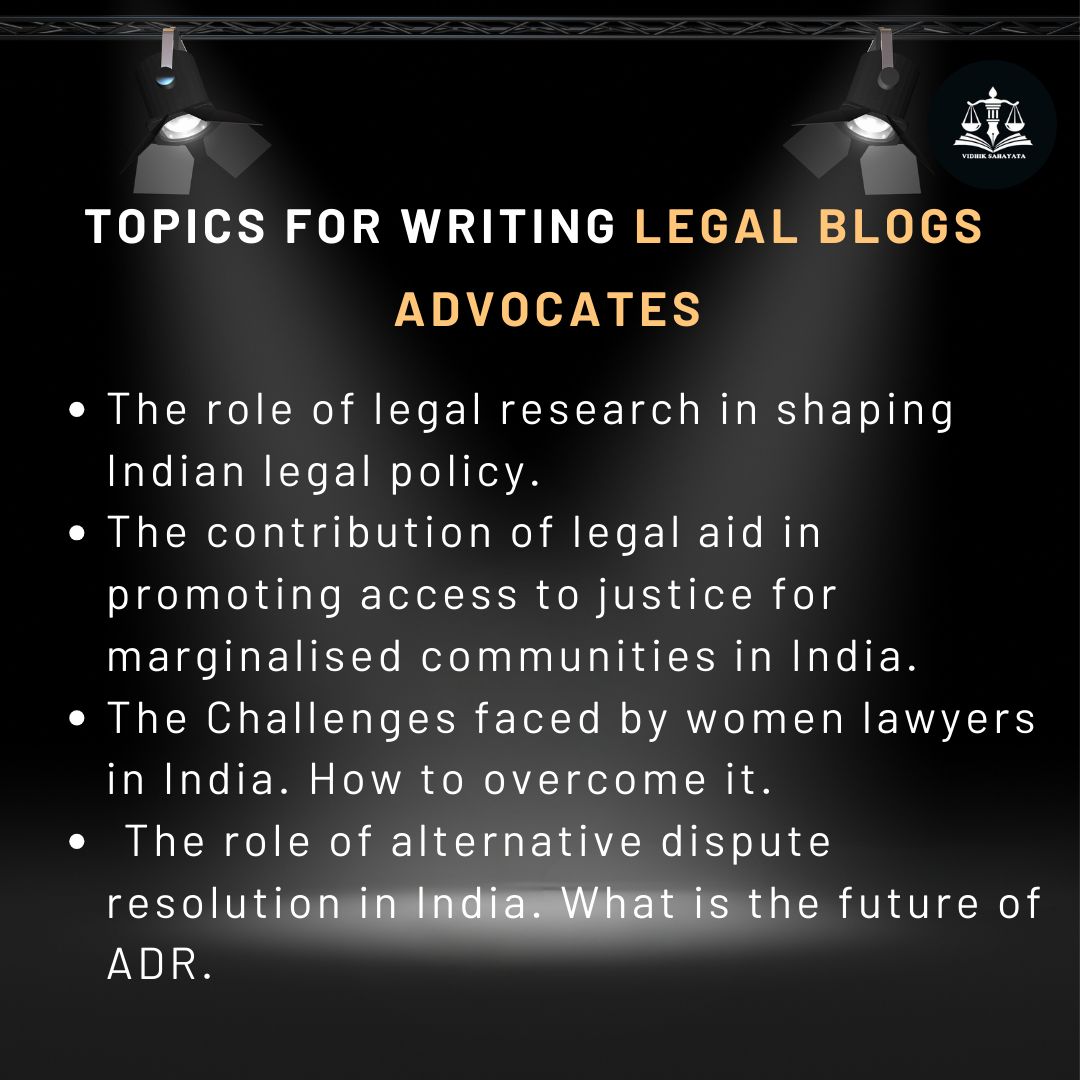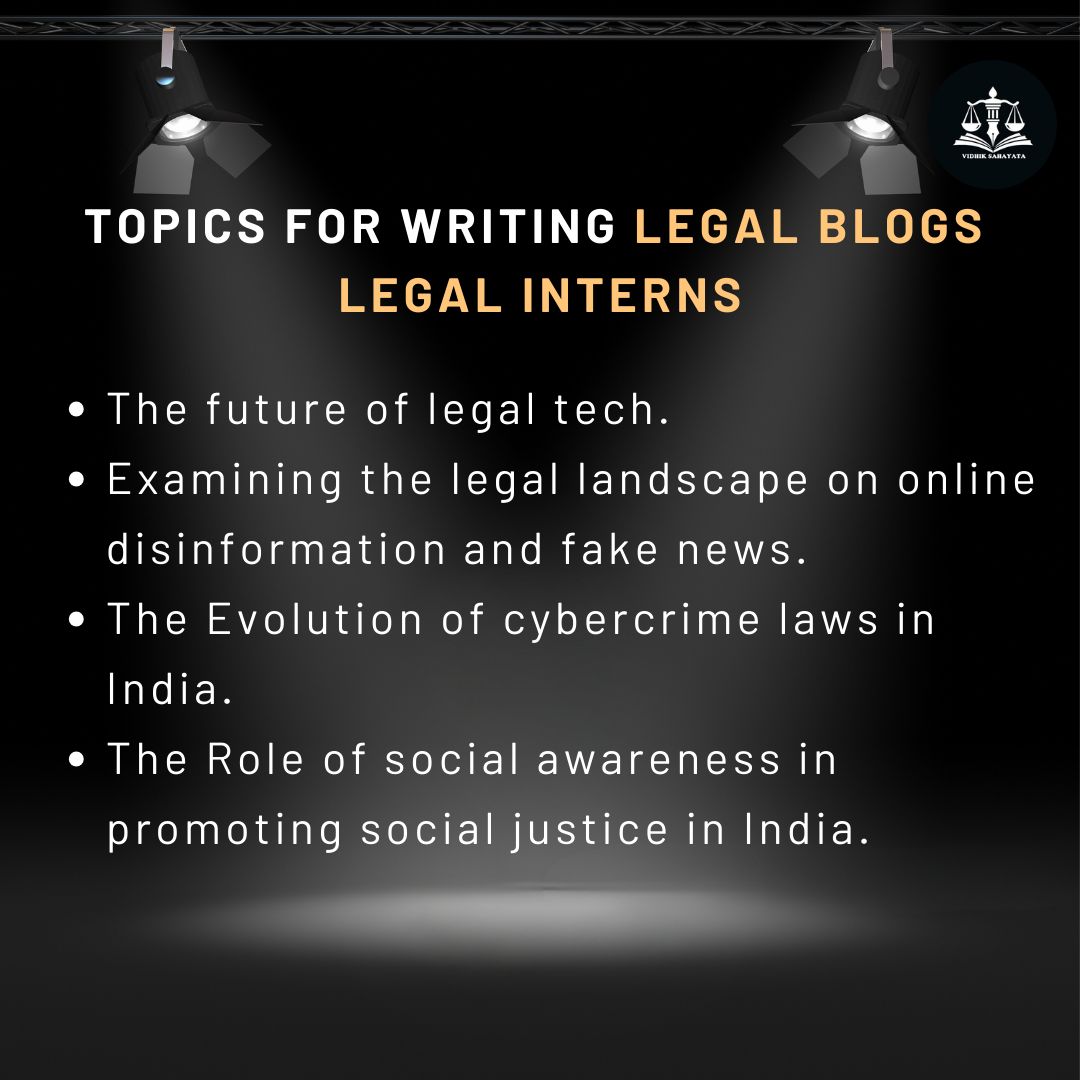How to Write an Article
In the evolving landscape of legal discourse, blogs have emerged as vital platforms for sharing knowledge, engaging in debate, and shaping public opinion. The National Legal Blog Competition, an esteemed event in this realm, offers a unique opportunity for law students, professionals, and enthusiasts to showcase their expertise and innovative thinking. If you’re gearing up to participate in this competition, understanding its nuances and crafting a compelling blog post can set you apart from the rest. Here’s a guide to help you navigate the competition and maximize your chances of success.
National Legal Blog Competition By Vidhik Sahayta:
Submission Period: 1st to 10th Aug.
Word Limit: Maximum 500 Words.
Prize awaits the Winner
Certificate for Participation!
Time to showcase your legal writing skills!
The National Legal Blog Competition aims to recognize exceptional legal writing and analytical skills. It’s not just about showcasing your legal knowledge but also about presenting it in a way that’s engaging and accessible. Judges look for clarity, originality, and relevance in the submissions. Make sure you understand the competition’s criteria and objectives, which often include:
- Clarity and Precision: Legal writing should be clear and precise, avoiding jargon and ensuring that complex concepts are explained simply.
- Originality: Your blog should offer a fresh perspective or unique insight into the legal issue you’re discussing.
- Relevance: Focus on current legal issues or emerging trends that resonate with a broad audience.


- Recent Legal Developments: Analyzing recent changes in the law or significant court rulings can provide fresh and valuable insights.
- Emerging Legal Trends: Explore new areas of law, such as technology law or environmental regulations, that are gaining traction.
- High-Impact Cases: Discussing influential cases or legal battles can captivate your audience and demonstrate your analytical skills.
Craft a Strong, Engaging Argument
A well-structured argument is the backbone of a successful blog post. Start with a compelling introduction that grabs attention and clearly states your thesis. Develop your argument logically, using evidence and examples to support your points. Conclude with a strong closing that reinforces your main argument and provides a call to action or food for thought.
- Introduction: Begin with an engaging hook that draws readers in and provides context for your topic.
- Body: Present your argument systematically, with each section building on the previous one. Use case law, statutes, and scholarly opinions to support your points.
- Conclusion: Summarize your argument and highlight its significance. Offer insights or recommendations if appropriate.
Ensure Clear and Accessible Writing
Legal writing can often become dense and difficult to read. Aim to make your blog post as clear and accessible as possible. Avoid excessive legal jargon and explain technical terms when they are necessary. Use headings and subheadings to organize your content and make it easier for readers to navigate.
- Plain Language: Use simple, straightforward language to explain complex legal concepts.
- Formatting: Break up text with headings, bullet points, and short paragraphs to improve readability.
- Examples and Analogies: Use real-life examples and analogies to illustrate legal concepts and make them relatable.
Edit and Revise Thoroughly
Editing is a critical step in the writing process. Review your blog post multiple times to ensure it is free of grammatical errors and that your arguments are logically sound. Consider having peers or mentors review your work and provide feedback. Their perspective can help you refine your arguments and enhance the clarity of your writing.
- Proofreading: Check for spelling and grammatical errors.
- Consistency: Ensure that your writing style and arguments are consistent throughout the post.
- Feedback: Seek feedback from others to gain different perspectives and identify areas for improvement.
Promote your Blog Post
Once your blog post is ready, promoting it can help you reach a wider audience and gain recognition. Share your post on social media, legal forums, and academic platforms. Engaging with readers and participating in discussions can also enhance the visibility of your work.
- Social Media: Share your post on platforms like LinkedIn, Twitter, and legal blogs.
- Networking: Engage with the legal community to increase your blog’s reach and impact.
- Follow-Up: Respond to comments and feedback to foster discussions and build your profile.
Conclusion
Participating in the National Legal Blog Competition is a fantastic opportunity to demonstrate your legal writing prowess and engage with contemporary legal issues. By understanding the competition’s objectives, selecting a relevant topic, crafting a strong argument, ensuring clear writing, and promoting your blog post, you can enhance your chances of success. Embrace the challenge, showcase your expertise, and contribute to the vibrant discourse of legal blogging. Good luck!
If you want to join this competition than you can register yoursef by clicking on the link give below:
Registration Link
https://forms.gle/oeH3dfK6QNTvNGyeA

